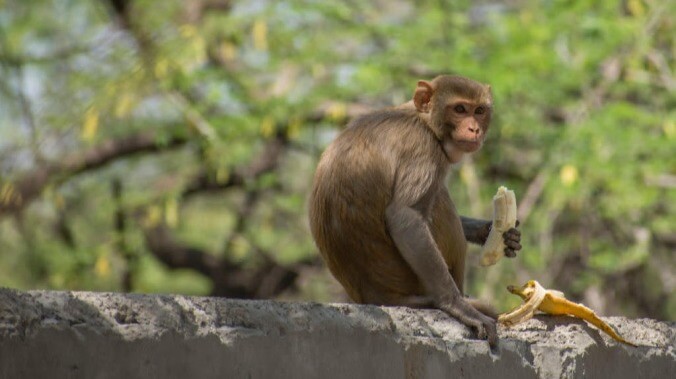The world has a lot on its plate already, which is why we’re sorry to spike your blood pressure with news that a bunch of monkeys recently managed to steal three COVID-19 test samples. The good side of all of this is that the samples are now back in human hands and we’re in no danger of an Outbreak situation; the bad is that the little jerks are getting increasingly bold while people are in quarantine.
This primate caper, which would be adorable if it didn’t involve lost samples of the virus currently throwing the world into pandemic-fueled chaos, began when, according to Reuters, “a troop of monkeys in [Meerut, Uttar Pradesh, India] attacked a medical official and snatched away blood samples of patients who had tested positive for the novel coronavirus.”
The thieves, a group of red-faced rhesus macaques, then ran off across the campus of the Meerut medical college and were spotted hanging out in trees just chewing away at their pilfered disease vials before being caught. In Sky News’ report, the college’s superintendent is quoted as saying the samples were “still intact and we don’t think there is any risk of contamination or spread.” This is good because that same article includes input from a biologist who fears that human/monkey interaction could lead to COVID-19 “[mutating] and [infecting] primates,” which would “have a devastating impact on primate species and other wildlife which prey on them.”
We can only imagine the rhesus macaques were extra red-faced after being caught for their crime, but it probably won’t slow them down too much. Sky News details how monkeys have begun crowding into new areas of cities like Delhi, hoping to find food. In the past, this kind of migration has led to full-on monkey brawls in Thailand, which, like monkey research thievery, aren’t nearly as funny as any of us would hope.
Send Great Job, Internet tips to [email protected]









































